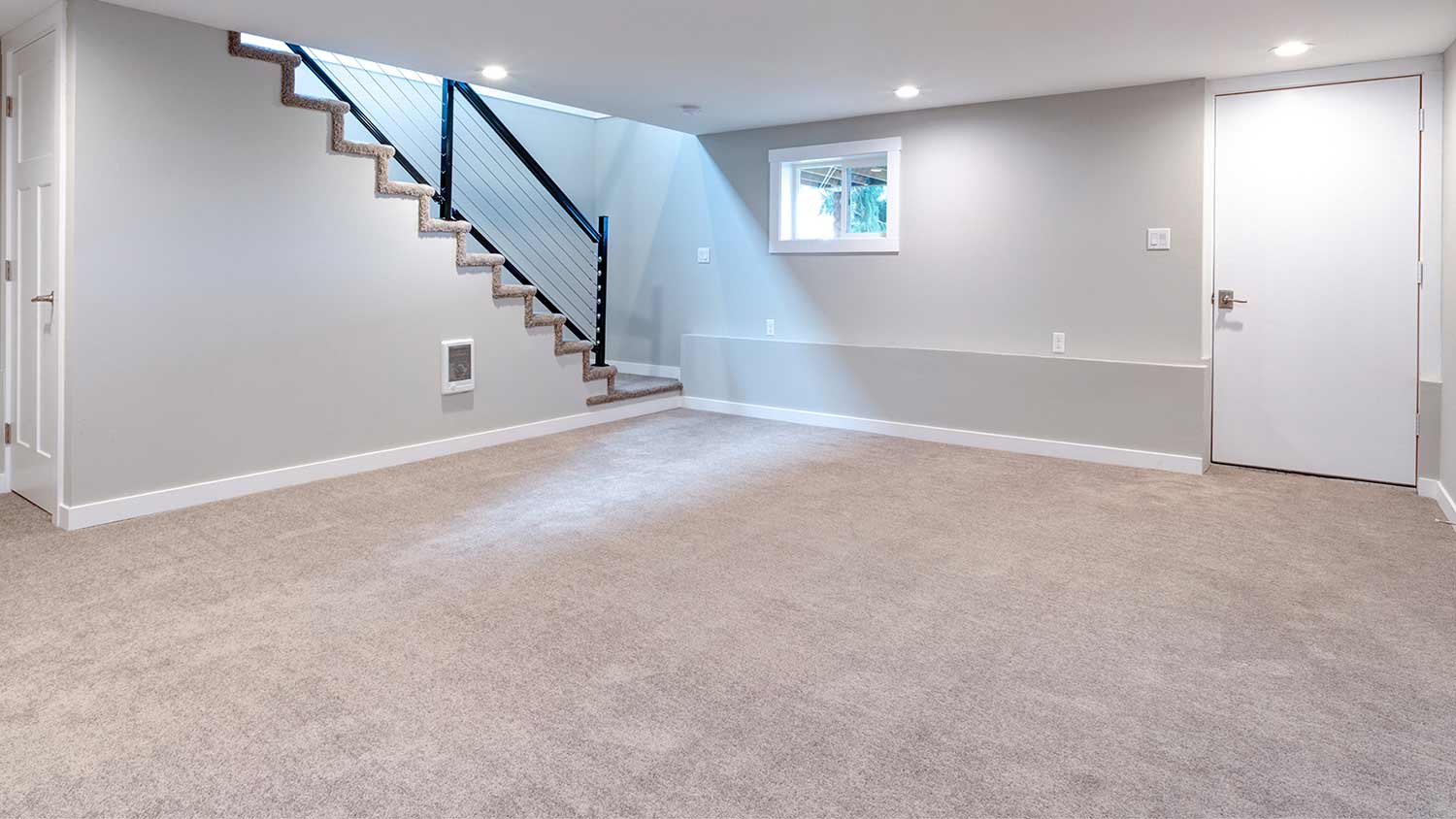Digging Deep: Are Basements Included in the Square Footage?
Get the scoop on your home’s square footage


Only finished aboveground livable space is calculated in your official square footage.
However, it varies by state whether finished basements are calculated in the square footage.
The legal definition of a finished basement may differ from the homeowner’s definition.
Are basements included in the square footage? It might seem like a no-brainer that when calculating your home’s square footage, your basement—which is, well, part of your home—is included. Unfortunately, it’s not as straightforward of an answer as expected. In this guide, we’ll cover how the square footage of a house is determined, if your basement is included, and whether this impacts your home’s value.
How Is the Square Footage of a House Determined?

Before we can discuss whether basements are included in your square footage, first, we need to cover how the square footage of your home is determined. Your official square footage, also known as the gross living area (GLA), is your home's finished aboveground square footage. And since Fannie Mae, a government-sponsored enterprise that makes mortgages more accessible, adopted the American National Standards Institute (ANSI) home measurement, this is how appraisers measure, calculate, and report your official square footage.
Are Basements Included in Square Footage?
Yes and no. It depends on whether your state allows a basement or any below-grade (below-ground) spaces to be included in the square footage. Some states may include basement space in your home’s square footage if it’s finished and a portion is above ground, like walkout basements with a legal ingress and egress. But even then, they might only count the aboveground section. You’ll need to talk with a local real estate agent to see if finished basement space is counted in the total square footage.
On the other hand, unfinished basements aren’t calculated in the total square footage of your home. Even if you’re currently using it, what’s considered a finished basement legally differs from what homeowners count as finished. There are certain criteria that a basement must meet to be up to code and counted as livable space, like being the same quality as the aboveground space and having proper electrical, plumbing, heating and cooling, walls, and flooring.
Is it Worth It to Finish a Basement?
While a finished basement might not be included in the official square footage of a house, that doesn’t mean it’s not worth your time and money. So, how much value does a finished basement add to your home? Let’s look at a few reasons to consider finishing your basement.
Increased Home Value
Even though you can’t include a finished basement in your official square footage, that doesn’t mean it doesn’t increase your home’s value. Most buyers will see a finished basement as a bonus to the square footage they’re getting on the main floor.
But keep in mind that this perceived value is based on how much work your finished basement has received. Homeowners will have different value perceptions if your basement has flooring and painted walls but is otherwise a blank canvas. Some buyers might see this as a space they can customize, while others might see it as a chore and an extra bill.
But overall, a finished basement has much more value than an unfinished one that still has the beams and insulation on display. And the cost to finish your basement might be a small price to pay for the return on investment you’ll get.
Competitive Edge in the Market
When every home in your neighborhood shares many of the same characteristics, a finished basement can allow you to ask for a higher price and bring more buyers to your door (and who doesn’t like the sound of that?). Plus, since you’ll likely have multiple offers, buyers will want to speed up the home-buying process, resulting in a quicker sale for you.
More Living Space
Not only will finishing your basement make it easier for you to sell it when you’re ready, but it also gives you more living space for you and your family. Whether you have young kids and can use that space as a dedicated playroom (and turn that upstairs one into a guest room) or you love to host friends and family and want to create an entertainment space, there really isn’t an end to basement remodeling ideas you can implement to turn your basement into more than just a selling point.
If you’re unsure how to utilize your space, especially if it’s huge, consult a basement remodeler near you for advice.
Does an Unfinished Basement Have Value?
It won’t have the same value as a finished basement, but an unfinished basement still has perceived value. For one, your location can play a major role in its value. If you live in an area where basements are few in between, you might be able to have a higher asking price because of its uniqueness.
Another thing that’ll give your basement more perceived value is if your buyer wants a more wallet-friendly home. Homes with a finished basement can increase their value by at least 25%. A buyer who wants a basement but isn’t ready to hand over more money for a finished one might see the appeal in an unfinished one and be willing to pay slightly more for it.





- How Much Value Does a Finished Basement Add to Your Home?
- What Is Considered a Finished Basement?
- Is It Possible to Add a Basement to an Existing House?
- Do You Need a Permit to Finish a Basement?
- Your Guide to Renovating a Basement From Top to Bottom
- Finishing a Basement: Everything You Need to Know
- 8 Tips for a Smooth DIY Basement Remodel, From Drainage to Drywall
- What You Should Know Before Adding a Bathroom to a Basement
- How to Keep Your Basement Dry and Get Rid of Moisture
- Who Do You Hire to Finish a Basement?










